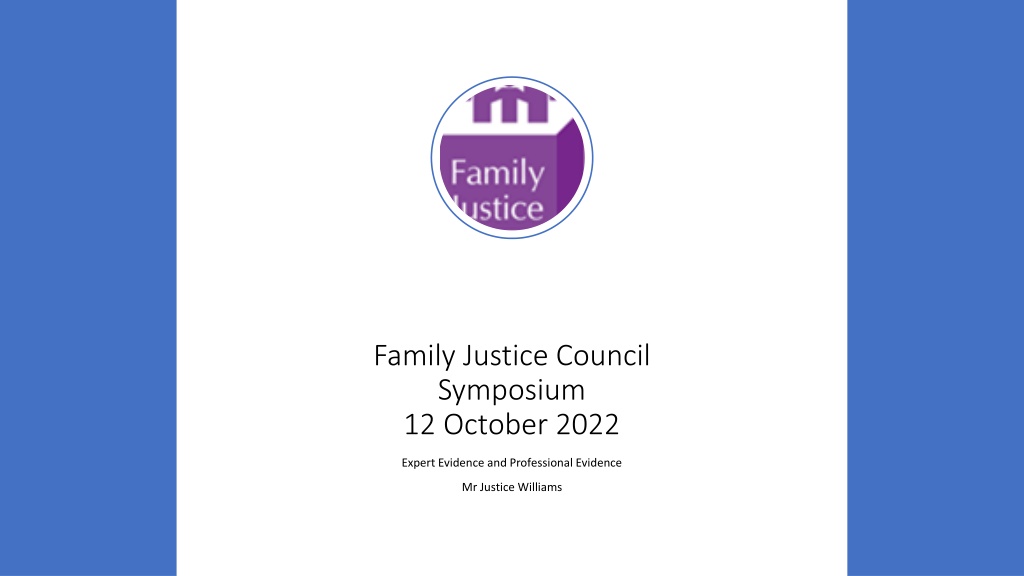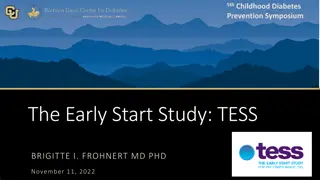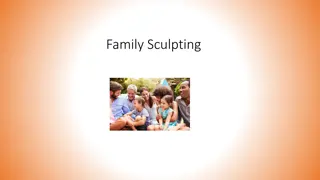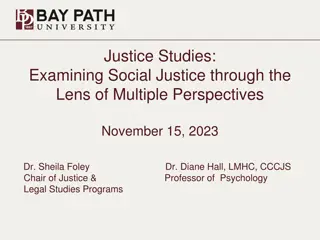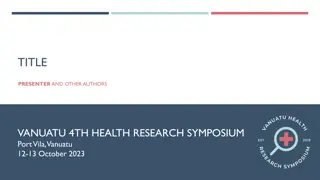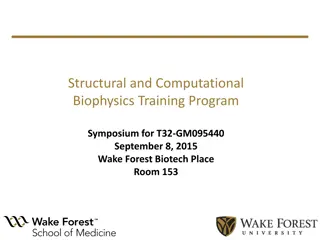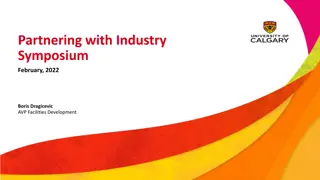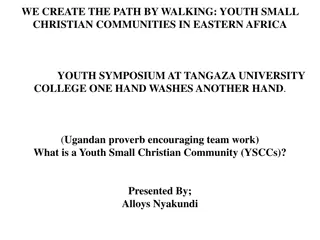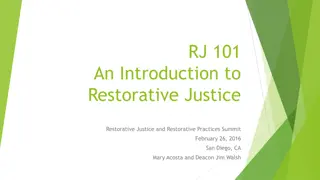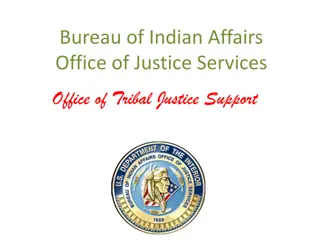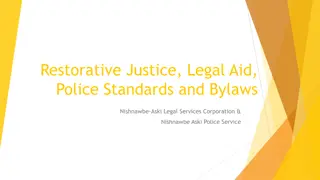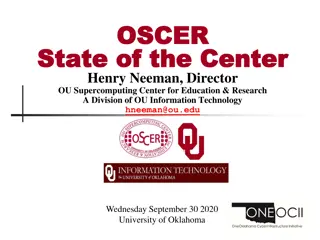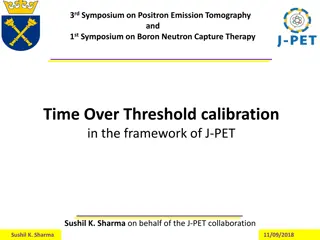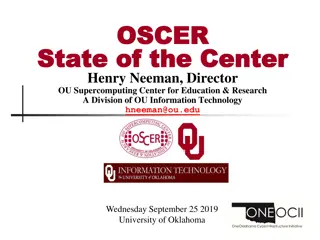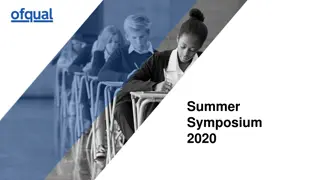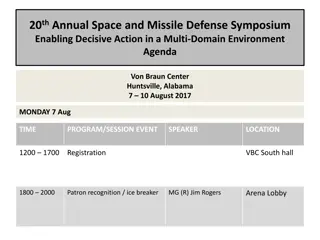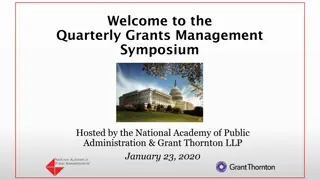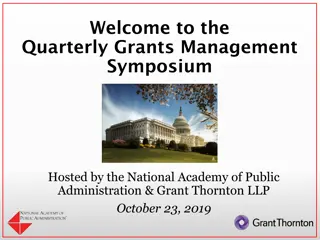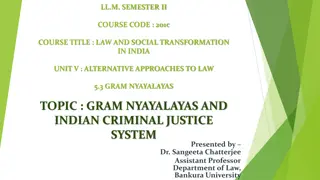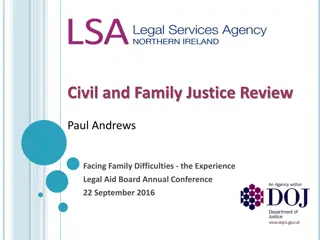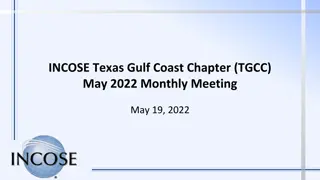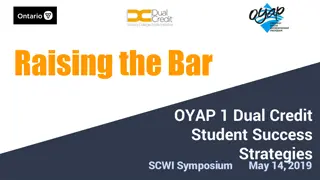Family Justice Council Symposium 12 October 2022
Explore the admissibility and importance of expert evidence in family justice cases, including the roles of different professionals like clinicians and psychologists. Learn about the criteria for expert witnesses and the impact of their opinions on court decisions.
Download Presentation

Please find below an Image/Link to download the presentation.
The content on the website is provided AS IS for your information and personal use only. It may not be sold, licensed, or shared on other websites without obtaining consent from the author.If you encounter any issues during the download, it is possible that the publisher has removed the file from their server.
You are allowed to download the files provided on this website for personal or commercial use, subject to the condition that they are used lawfully. All files are the property of their respective owners.
The content on the website is provided AS IS for your information and personal use only. It may not be sold, licensed, or shared on other websites without obtaining consent from the author.
E N D
Presentation Transcript
Family Justice Council Symposium 12 October 2022 Expert Evidence and Professional Evidence Mr Justice Williams
Content Context Who is an expert and what is expert evidence? Admissibility of expert evidence Distinctions The purpose of evidence from clinicians
Context: Facts and Opinions A practice nurse writes a letter saying a patient is too unwell to attend court A GP letter says a patient is depressed and anxious and that dealing with the other parent over contact is contributing A counsellor whose report on a client/patient is submitted with a witness statement (opinion that P has complex PTSD and has suffered domestic abuse) A paediatric ST1 who attends as child arrive in ambulance, notes blood coming from right nostril, boggy swelling on right side of head and hears mother on phone saying He did it again A radiologist StR who sees an x-ray of a child and recorded in medical notes a spiral fracture of the left humerus indicative of a twisting action, possible abusive injury. A consultant paediatrician who sees a child and parents. Child has marked petechiae on one side of face and neck. No history of choking or vomiting. Consultant considers suffocating event most probable cause and child protection protocols initiated. Consultant psychiatrist and psychotherapist treating P for several years provides report confirming P does not have personality disorder or a substance related addictive disorder. Local authority file a report from a psychologist working with the childrens services department opining mother and child have insecure attachment linked to neglectful parenting. Part 25 Psychologist recounts conversation with parent which is disputed by parent.
What is an expert? President s Memorandum: Experts in the Family Court If scientific, technical or other specialised knowledge will assist the trier of fact to understand the evidence or to determine a fact in issue, a witness qualified as an expert by knowledge, skill, experience, training, or education, may testify thereto in the form of an opinion or otherwise. [Lord Reed PSC in the Supreme Court in Kennedy v Cordia (Services) LLP (Scotland) [2016] UKSC 6 Who do the courts regard as experts? Who do clinicians regard as experts?
Admissibility of Expert Evidence - whether the proposed expert evidence will assist the court in its task; - whether the witness has the necessary knowledge and experience; - whether the witness is impartial in his or her presentation and assessment of the evidence; and - whether there is a reliable body of knowledge or experience to underpin the expert s evidence. All relevant to decision on Necessity more imperative than desirable (s.13 Children and Families Act 2014 Expert evidence inadmissible in children cases without permission - The pseudo-science issue. (Is there a reliable body of knowledge)
Distinctions The treating clinician The Part 25 expert Duty to patient Duty to the Court Relevance of clinical guidance Relevance of Part 25 and expert guidance Availability of information Training Adherence to Codes Evidence Pressures of time and circumstance Leisure
Sunderland CC v AB (Re-hearing: Fact-Finding: Expert or Professional Evidence) [2019] EWHC 3887 (Fam) (22 November 2019) Evidence from an individual instructed pursuant to FPR Part 25 clearly results in 'expert' evidence. In a general sense expert evidence though is in reality opinion evidence. The court permits an individual to give opinion evidence because they have an 'expertise' in a particular field. A report from a treating clinician will contain opinion evidence. That clinician is qualified to give an opinion in the medical sense because they are a qualified doctor. The more senior that individual is the more likely the court would accept that they had expertise which allowed them to offer opinion evidence to the court. A consultant level medical professional would I think barring some oddity, bring them into the bracket where the court would be likely to view them as an expert qualified to give an opinion. The opinion of a relatively junior doctor on a relatively straightforward issue might also be accepted by the court as qualifying as expert evidence because it would fall within expertise on that issue. Conversely the opinion of a relatively junior doctor on a matter of considerable complexity might not. However there is at least one significant potential limitation on the weight that might be given to the opinion evidence of the treating professional. The situation of the medical professional who is called upon to treat a child generates an opinion in a very different context to that of the part 25 expert. The focus of the treating professional is to treat the child by ascertaining the most likely cause of the condition or injury. This may be undertaken as a result of a process of elimination or otherwise. The imperative is to address the condition and to adopt an appropriate plan to treat or protect the child. The treating professional may develop a personal relationship with the child or indeed with the carers. Having formed an opinion in the crucible, perhaps of an emergency it may be difficult for the treating professional to detach themselves from that and apply a purely objective approach. The situation of the part 25 expert is of course entirely different. In assessing the relative weight to be given to the evidence of a treating professional as against that to be given to the part 25 expert a court ought to bear these factors in mind.
Evidence from an expert. Their remit is set by the court Their acceptance of instruction brings with it a raft of duties Independent and objective opinion for the court Compliance with FPR PD25B and Annex Compliance with any professional codes on expert evidence Compliance with any membership organisation codes Demonstration of expertise requiring significantly greater than simple compliance with competent/best medical practice and within the bounds of expertise They must record a range of views They must identify where another expert is required Take account of all material Provide a report complying with FPR PD25B #9.1 Notify of a change in views
Evidence from a treating clinician. What is the purpose of the clinician being asked to provide a witness statement or give evidence? What is it being adduced for and what further use may be made of it? To record the view they reached then? (a simple matter of fact) To review that and update it? (is the court placing weight on that opinion as proof of a relevant matter) To test it in the light of later received information? Are they being asked to perform a Pt 25 role? The blurred boundaries (between an opinion formed at the time and a later one) Is permission given?
Identifying the distinction: whose role? Judge Clinician/Expert Lawyer
Conclusions The use of clinicians to provide expert evidence is a fact of life in a system where time and money is scarce Clinicians can give expert evidence but context is all In fairness to all concerned it is critical to identify their status as an opinion giver The parties The court The expert All involved have a role to play
